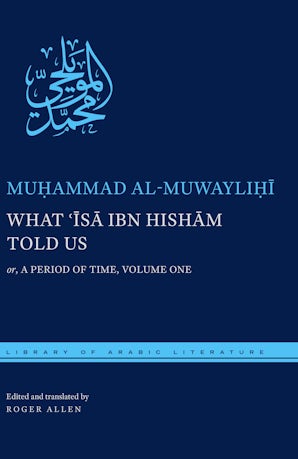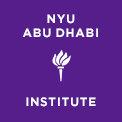
What ʿĪsā ibn Hishām Told Us
or, A Period of Time, Volume One
496 Pages
July 2015
ISBN: 9781479813889
With What ʿĪsā ibn Hishām Told Us, the Library of Arabic Literature brings readers an acknowledged masterpiece of early twentieth-century Arabic prose. Penned by the Egyptian journalist Muḥammad al-Muwayliḥī, this exceptional title was first introduced in serialized form in his family’s pioneering newspaper Miṣbāḥ al-Sharq (Light of the East), on which this edition is based, and later published in book form in 1907. Widely hailed for its erudition and its mordant wit, What ʿĪsā ibn Hishām Told Us was embraced by Egypt’s burgeoning reading public and soon became required reading for generations of Egyptian school students.
Bridging classical genres and the emerging tradition of modern Arabic fiction, What ʿĪsā ibn Hishām Told Us is divided into two parts, the second of which was only added to the text with the fourth edition of 1927. Sarcastic in tone and critical in outlook, the book relates the excursions of its narrator ʿĪsā ibn Hishām
and his companion, the Pasha, through a rapidly Westernized Cairo at the height of British occupation, providing vivid commentary of a society negotiating—however imperfectly—the clash of imported cultural values and traditional norms of conduct, law, and education. The “Second Journey” takes the narrator to Paris to visit the Exposition Universelle of 1900, where al-Muwayliḥī casts the same relentlessly critical eye on European society, modernity, and the role of Western imperialism as it ripples across the globe.
Paving the way for the modern Arabic novel, What ʿĪsā ibn Hishām Told Us is invaluable both for its sociological insight into colonial Egypt and its pioneering role in Arabic literary history.
A bilingual Arabic-English edition.
Reviews
-
"[Allen's] craftsmanship is on full display in these magisterial translations . . . of supreme literary complexity."
— Journal of Arabic Literature
-
"While illustrating his novel with local examples from that time, al-Muwaylihi's effective critique is as broad and relevant as much classical Western satire; surprisingly much of it feels very modern, the various arguments and examples easily imaginable in contemporary settings . . . A cohesive (and still very far-reaching) work that also offers a lot of entertainment value. Its an enjoyable read, with some great anecdotes and very funny scenes and a lot of interesting arguments."
— The Complete Review
-
"Has a compelling charm—humane, earnest, observant, and erudite."
— Journal of the American Oriental Society
eBooks
Exam Copy
Please list your name, institutional affiliation, course name and size, and institution address. NYU Press will cancel exam copy orders if information cannot be verified.

